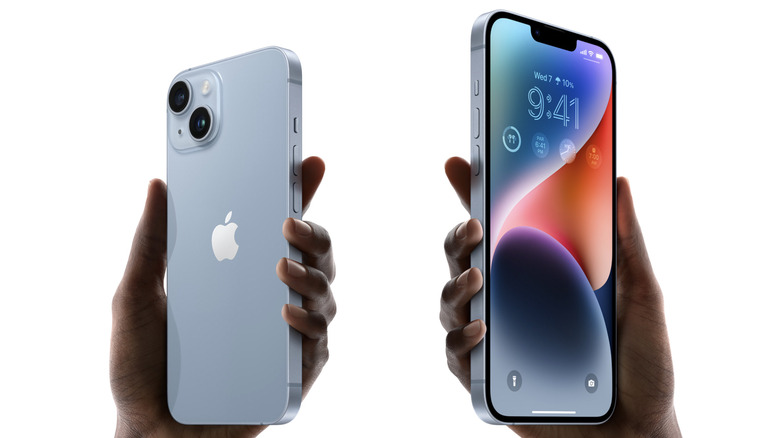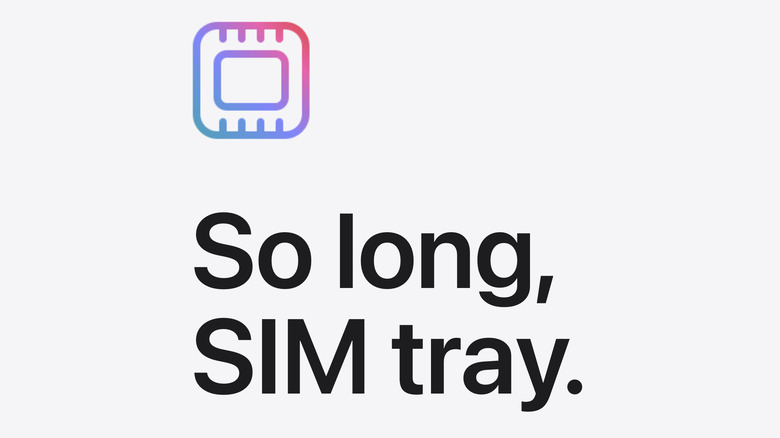Why Apple Users Aren't Happy About iPhone 14's eSIM
The iPhone 14, iPhone 14 Plus, Pro, and Pro Max, are almost here. Along with the expected design updates, the new model adds some significant improvements — particularly to the camera system. But this line also features the removal of a feature, so to speak. Every now and then an electronics company may try something new, or attempt to get rid of features it believes are outmoded. We've seen it happen with the iPhone headphone jack, and now it's happening to the iPhone's SIM tray.
Yes indeed, much to the chagrin of some and the ambivalence of others, Apple is ditching physical SIM cards (specifically in U.S. models) in favor of an eSIM-only setup. Granted, eSIM technology is nothing new for Apple's smartphones, but previous models have offered both a physical SIM and an eSIM option. The company sees this as a boon for users because it will allow them to easily switch between digital SIMs in order to manage multiple numbers on a single phone or switch to a more travel-friendly option when going abroad.
And because there's no physical SIM card, there's no way for someone to swap it out if your iPhone is lost or stolen. And yet...
Why is this a problem?
Well, it's not really a problem at all — except it's also a big problem. Really it depends on the situation, which is why it's difficult to see if this decision will come back to take a bite out of Apple.
Due to their digital nature, eSIMs are much easier to switch between than physical SIM cards. An eSIM would, for example, allow you to hop from major provider to major provider at your leisure. You could abandon AT&T, test out T-Mobile, or veer towards Verizon without having to take a trip to their respective authorized stores. But that's kind of also the problem here: You can freely try out and shuffle around major carriers.
Many smaller cell carriers don't support eSIM, which creates a problem for current customers who want to upgrade to the iPhone 14, or future iPhone 14 users who want to switch to the smaller carrier. The quick-switch benefits of eSIM are also pretty much nonexistent if you're going to be using a locked phone (i.e. paying in monthly installments).
With the benefits and drawbacks of eSIM exclusivity being highly dependent on specific scenarios, all we can do is wait and see how things go once the iPhone 14 has made it into more pockets. It could have next to no noticeable impact on the average customer, it could be a logistical nightmare, or it could push a lot more carriers into supporting eSIM.

